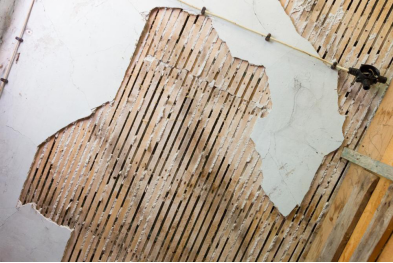Leak Detection: Signs That You Have a Slab Leak

As a homeowner, you might have had to face a lot of plumbing issues—clogs, leaking faucets, garbage disposals that won’t budge, water heater trouble and whatnot!
This doesn’t necessarily mean that you’re aware of everything that could go wrong with your plumbing system.
Sometimes, it takes an expert’s eye to detect underground plumbing issues related to water pipes and drainage lines.
We’ve compiled a list of early signs of slab leaks so that you can call a professional plumber before the situation worsens.
Jump to Section
Increased Water Bills
Slab leaks are water leaks that occur underneath the foundations of homes, within the walls, ceiling, and floors.
They are often associated with unusual surges in water bills since they keep leaking water while remaining out of sight.
If you’ve been using the same water heater and all of your plumbing fittings and fixtures seem functional on the surface, the rise in your water bills could most probably be a result of a slab leak.
Water Spots
A wet patch on an unusual part of the floor or ceiling is indicative of a slab leak. It shows that the water under the floor insulation or those behind the ceiling insulation are damaged.
Water pipes corrode faster since they are constantly exposed to water. If there is water on the bathroom floor, check your toilet and sink valves to make sure they aren’t leaking.
A cluster of dark and faded yellow spots may not seem serious, but with time, these slab leaks could turn into uglier problems like weaker roofs.
Damp Flooring
Be on the lookout for water pooling outside your homes. If there isn’t a water hose nearby, a pool of water can be an indication of a slab leak.
If there is standing water in your kitchen and bathroom floor, make sure your sink pipes aren’t clogged and appliances are not leaking.
A damp floor or ceiling could lead to visible damage as the accumulated water does not have anywhere to go. It sits on the floor and causes the concrete and tiles to splinter and crack.
Mold and Mildew
Where there’s moisture, there’ll be mold! Water leaks can expedite the growth of mildew and cause mold to develop underneath damp carpets and wet ceilings.
If you are unsure about mold growing in some part of your house, look for the distinctive musty odor. It might flare up your asthma and cause breathing issues. So, if you notice a sudden stale smell coming from the carpets and walls, check for slab leaks.
Low Water Pressure
Slab leaks can ‘steal’ water away from your faucets and cause a decrease in water pressure. Low water pressure in taps near a concrete slab could indicate a hidden leak.
Low water pressure can also be an indication of debris and mineral buildups in the pipes. Make sure the pipes are clean and not clogged with waste.
Cracked Ceiling Structure
A water leak underneath the house foundation can lead to cracks in the ceiling. It damages the stability of the concrete significantly. What’s worse is that concrete cracks are expensive to repair.
Contact a Plumbing Service
If you’ve noticed any of these signs around your house, it’s better to call a professional residential plumbing service.
Your 1 Plumber guarantees water leak detection Deerfield Beach FL and repair of plumbing fixtures and slab leaks for homeowners in Pompano Beach, FL.
Call us at 561-403-1500 and schedule an appointment with our trained and licensed technicians.

